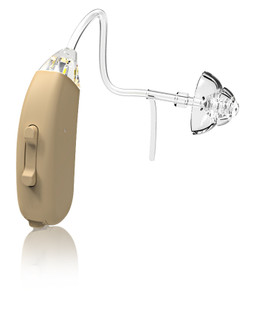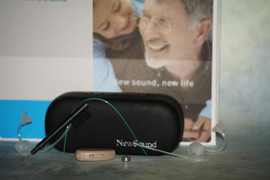Empowering Your Ears: Self-Care Practices for Managing Hearing Loss
Posted by DR Paul on Dec 03, 2024
Living with hearing loss can be a challenging journey, but it doesn't have to be an isolating one. By embracing self-care practices, you can effectively manage your condition and enhance your quality of life. From practical daily routines to knowing when to seek professional advice, understanding the tools and strategies available to you will empower you to take control of your auditory health. This blog aims to guide hearing aid buyers through thoughtful self-care practices while fostering a proactive approach towards managing hearing loss.
Hearing loss tailoring self-care practices
Hearing loss is a widespread condition that affects millions globally, yet each individual's experience is unique. Acknowledging this uniqueness begins with tailoring self-care practices that resonate personally with one's lifestyle and needs. Start by creating a quiet, comfortable environment at home where communication is easy. Minimize background noise whether you're watching TV or having a conversation; it helps in reducing strain on your ears and makes listening more enjoyable. Implementing these changes not only supports effective hearing but also caters to mental well-being by reducing stress often associated with struggling to hear.
Comfort with hearing aids as a crucial tool
When it comes to using technology like hearing aids or assistive devices, becoming familiar and comfortable with these tools is crucial. Regular maintenance of these devices ensures optimal performance—clean them as instructed, check batteries frequently, and consider routine adjustments from an audiologist if needed. Additionally, explore smartphone apps designed for people with hearing challenges—they offer features like speech-to-text translation or amplification of specific sounds which can make day-to-day activities smoother.
Simple hearing precautions
A key aspect of managing hearing loss involves protecting your residual hearing ability. Simple precautions such as keeping headphone volumes at safe levels are essential; as a rule of thumb, ensure that you can still hear conversations around you even when listening through earbuds. In noisy environments such as concerts or construction sites, invest in quality ear protection like noise-canceling headphones or custom earplugs tailored for those settings.
Professional hearing intervention
It’s equally important to recognize when professional intervention becomes necessary. If new symptoms arise or existing ones worsen—such as persistent ringing in the ears (tinnitus), difficulty understanding speech even with aids on, or sudden changes in hearing capacity—consultation with healthcare providers should be sought promptly. Regular check-ups with an audiologist help monitor your condition over time and allow necessary adjustments in treatment plans.
Equipping yourself with the right questions enhances communication during medical appointments and ensures comprehensive care. Consider asking about the latest advancements in hearing aid technology that might benefit your condition or inquire about lifestyle changes that could positively impact your auditory health beyond device use alone. Understanding potential side effects of any recommended treatments also prepares you for informed decision-making regarding your health journey.
Navigating life with hearing loss requires patience, adaptation, and resilience—but above all, it benefits immensely from nurturing personal empowerment through self-care practices. By adopting practical habits tailored specifically for managing auditory challenges and remaining vigilant about seeking professional guidance when needed, individuals can significantly improve their quality of life. Remember that embracing these steps is not just about coping; it's about thriving amid change and continuing to engage fully with the world around us despite any hurdles our ears may present along the way.










